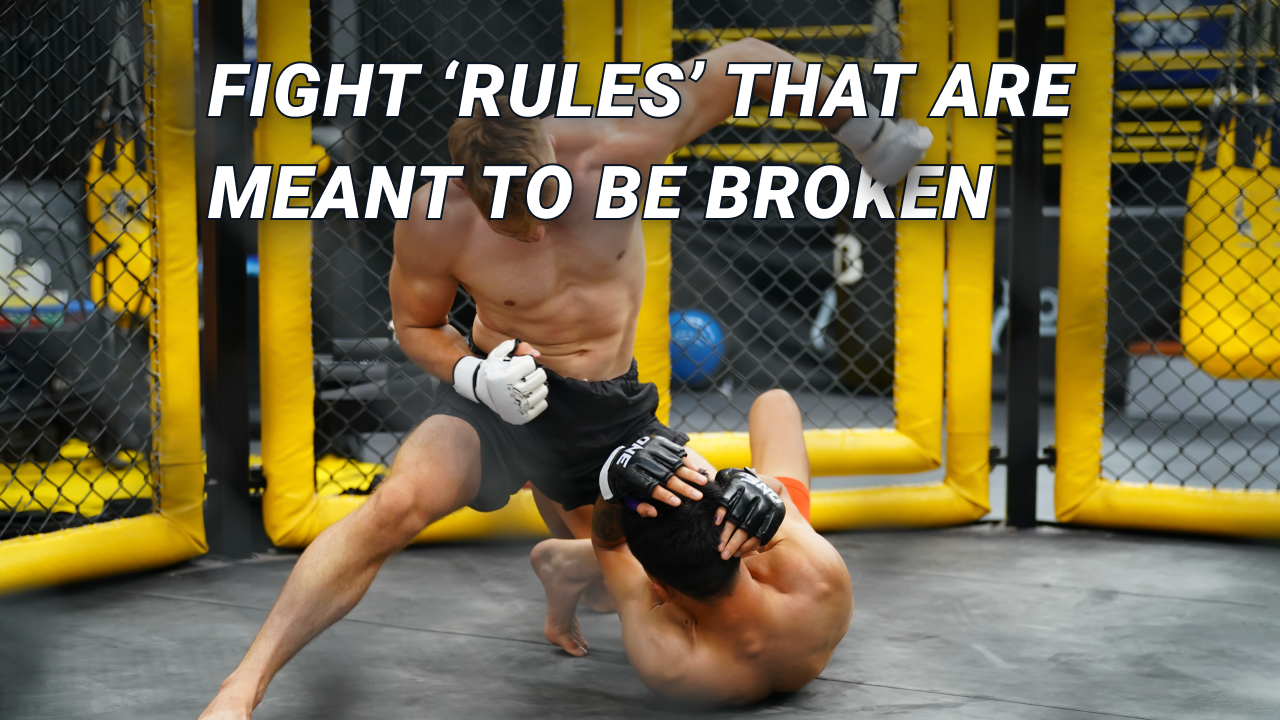Fight ‘Rules’ That Are Meant to Be Broken

There’s a common saying that rules are meant to be broken, especially in creative pursuits like writing, painting, or even practicing jiu-jitsu (never forget that there is an art to martial arts). Artists like Picasso and William Faulkner regularly trampled on the norms and of their preferred artforms, creating some of the most brilliant works of the 20th century and are still highly respected to this day for their disregard for formalities and conventions.
While it’s true that geniuses are known for breaking all the rules, it’s also true that geniuses are rare breeds. In fact, for every genius that breaks a rule to become an iconoclastic figure, there are probably 10,000 people who are breaking a rule to their own detriment. What makes the difference?
Rules Are for Beginners
Breaking a rule doesn’t make you a genius or a great fighter. Just look at anyone who is new to martial arts. They break all the rules. Do they look like geniuses or great fighters?
What makes someone a genius is that they understand the underlying system so well that they can bend and break the rules. This can take years of study and practice, and no beginner should expect to understand a martial art on that level until they become an advanced student. Instead, they should listen to their coaches and follow the rules. As Shane Fazen from FightTIPS says in the below video, rules are “memorable cues for beginners to prevent them from forming bad habits.”
If you are a beginner, there is no shame in that. Everyone has to start somewhere, and you should look for a coach who encourages you to form good habits and keeps you from forming bad habits. Their goal is not to create cookie-cutter fighters or to discourage individualism. Their goal is to set you up for success and to teach you the “rule” so that you can later learn to bend and even break them once you have a more sophisticated understanding of your preferred martial art—whether it’s boxing, Muay Thai, jiu-jitsu, or mixed martial arts.
Rules That Can Be Broken
In the above video, Shane meets up with some fellow trainers at Icy Mike’s gym RKM Training in Myrtle Beach. Each one of them talks about a specific rule that they were told to always follow that they’ve found can be broken in some scenarios. Below are some of the highlights.
Rule: Keep Your Hands Up
Most beginners do not like keeping their hands up. It feels unnatural, it can interfere with mobility, and it creates a sense of tunnel vision that may feel restrictive. However, having your hands elevated allows you to jab a lot quicker. Moreover, leaving your hands down can make it more difficult to block strikes to the face.
As Mike shows, the rule that you have to always keep your hands up can be broken if you drop your hands to invite your opponent to throw a punch that easily opens up a counter strike that would be difficult to land if your hand were up. This is especially true for uppercuts, but it can work for other types of punches. In general, if you can draw your opponent into a trap and end the fight, but you have to break a rule, then you should break the rule.
Rule: Don’t Pull Your Head Back
Pulling your head back is a natural response when someone takes a swing at you. However, pulling your head back can throw you off balance and fail to be evasive when a strike is coming from straight ahead. If your opponent connects with your face when you’ve pulled away, it can be a catastrophic hit.
As shown in the video, pulling back as a solely defensive maneuver may not be the best idea, but if timed right, it can help you build momentum and help sling your body forward for a counterstrike.
Rule: Don’t Give Up Your Back
Particularly in jiu-jitsu, beginners will be told never to give up their back. While everyone will agree that it’s not a good idea to just let your opponent take your back, it is a totally fine strategy if it allows you to then transition into a dominant position.
As Ken Shamrock once said, you can give up your back if you have a plan, and this is true for just about anything in martial arts. If you have a plan and enough experience to properly execute that plan, then you don’t need rules.

